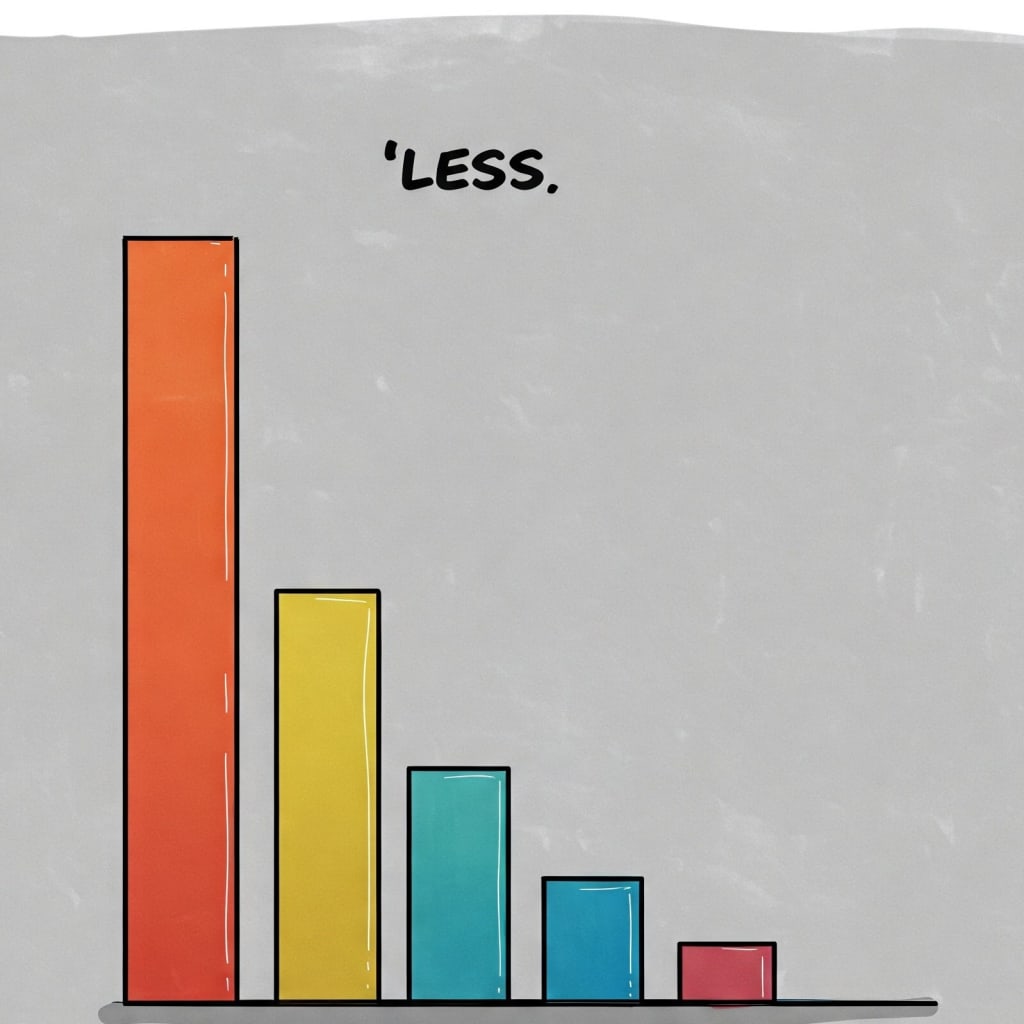Less
Definition
Less is an adjective, adverb, noun, and preposition. As an adjective, it refers to a smaller amount or degree of something. As an adverb, it indicates a reduced degree or quantity. As a noun, it denotes a smaller quantity. As a preposition, it means minus or without something.
Parts of Speech
- Adjective
- Adverb
- Noun
- Preposition
Pronunciation
American English
- IPA Pronunciation: /lɛs/
- Respelling: LESS
British English
- IPA Pronunciation: /lɛs/
- Respelling: LESS
Etymology
The word "less" originates from Old English "læs," meaning "smaller, less, or fewer," derived from Proto-Germanic "*laisiz." It has been in use since the 9th century, evolving into modern English to signify a reduced amount or degree.
Derivatives
- Lessening (noun/verb)
- Lessened (adjective)
- Lessness (noun)
- Unless (conjunction)
- Lesswise (adverb)
Synonyms
- Smaller
- Reduced
- Lower
Antonyms
- More
- Greater
- Higher
Usage
The term "less" is used in everyday language to indicate reduction or a smaller amount. For example, "I have less work today," or "The new version is less complicated."
Related Terms
- Fewer: Used to describe a smaller number of countable items.
- Minimize: To reduce something to the smallest possible amount.
- Reduce: To make something smaller in size, amount, or degree.
Detailed Definitions
Adjective
- Smaller in amount, degree, or importance: Indicates a reduced quantity or quality.
- Example: "She used less sugar in the recipe."
Adverb
- To a smaller extent or degree: Refers to a diminished level of intensity.
- Example: "He is less interested in politics now."
Noun
- A smaller amount: Refers to a reduced quantity or portion.
- Example: "The company spends less on advertising."
Preposition
- Minus or without something: Used to denote subtraction or lack.
- Example: "He earned $200 less expenses."
less



🇨🇳 Mandarin
- 更少 (gèng shǎo): less
- IPA: /kɤŋ ʂau̯/
- Respelling: gung-shao
🇮🇳 Hindi
- कम (kam): less
- IPA: /kəm/
- Respelling: kuhm
🇪🇸 Spanish
- menos: less
- IPA: /ˈmenos/
- Respelling: meh-nos
🇫🇷 French
- moins: less
- IPA: /mwɛ̃/
- Respelling: mwan
🇦🇪 Arabic (Modern Standard)
- أقل (aqal): less
- IPA: /ʔakal/
- Respelling: aqal
🇧🇩 Bengali
- কম (kom): less
- IPA: /kom/
- Respelling: kom
🇷🇺 Russian
- меньше (men'she): less
- IPA: /ˈmʲenʲʂɨ/
- Respelling: myen-she
🇵🇹 Portuguese
- menos: less
- IPA: /ˈmẽ.nuʃ/
- Respelling: men-oosh
🇮🇩 Indonesian
- kurang: less
- IPA: /kʊˈraŋ/
- Respelling: ku-rang
🇩🇪 German
- weniger: less
- IPA: /ˈvɛnɪɡɐ/
- Respelling: vein-ee-ger
🇯🇵 Japanese
- より少ない (yori sukunai): less
- IPA: /joɾi sɯ̥ᵝkɯ̥ᵝnai/
- Respelling: yoh-ri su-koo-nai
🇻🇳 Vietnamese
- ít hơn: less
- IPA: /it̚˧˦ həːn˧˦/
- Respelling: it hon
🇰🇷 Korean
- 더 적게 (deo jeokge): less
- IPA: /tʌ̹ t͈ʌ̹k̚e̞/
- Respelling: duh jeok-ge
🇹🇷 Turkish
- daha az: less
- IPA: /daha az/
- Respelling: dah-hah az
🇵🇰 Urdu
- کم (kam): less
- IPA: /kəm/
- Respelling: kuhm





